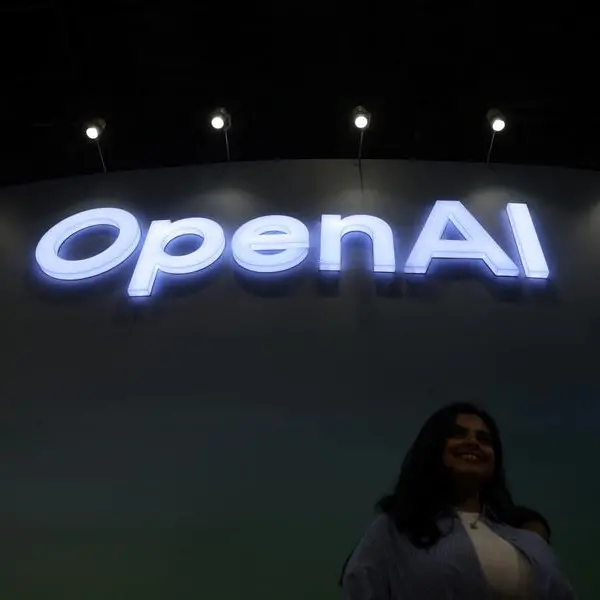PHOTO
As the UAE’s annual tech show opens its doors in Dubai on Monday, it comes as no surprise that amidst the buzz words like digital economy, 6G, and Web 3.0, Artificial Intelligence or AI will be central to the future focused innovations unveiled at GITEX.
Out of the 6,000 exhibitors showcasing at the five-day conference at the Dubai World Trade Centre, and its off-shoot events at Dubai Harbour and the Museum of the Future, there will be dialogue and scrutiny into this shift in paradigm that greatly favours the adoption of Generative AI by governments and corporates.
AI’s influence in the wake of this fourth industrial revolution cannot be overlooked, with a recent PwC report forecasting its potential impact in the Middle East to reach $320 billion by 2030. The largest gains are expected to accrue in Saudi Arabia where AI is predicted to contribute over $135.2 billion in 2030 to the economy, equivalent to 12.4% of the GDP. The ‘AI Impact Index’ study by the research and advisory firm also positions the UAE with the largest impact, close to 14% of 2030 GDP or $96 billion.
Research conducted by market intelligence firm International Data Corporation (IDC) estimated that 25% of all AI investment in the region would be spent on developing AI solutions, followed by spending in public services, including education and healthcare, and the manufacturing sector.
AI governance
Yet, even as tech titans continue to spearhead this agenda at GITEX this year with more than 1,000 AI-infused companies participating, according to organisers, concerns over governance, regulations, and job security remain.
Addressing such concerns at this week’s Dubai Assembly for Generative AI, ahead of his appearance at GITEX, Omar Sultan Al Olama, UAE Minister of State for Artificial Intelligence, Digital Economy & Remote Work Applications, has called for a fresh approach to how countries govern AI, urging the global community to come to a consensus on AI governance sooner than it did on climate change.
“I think the current global discussion on AI governance is a non-starter. You cannot govern AI. Instead of attempting to govern the technology, we can govern the use cases,” Olama said during a fireside chat. “While governments and societies must openly address concerns around AI, fear should not dominate the discussion.”
He urged individuals not to be driven by fear of job losses but to channel their anxiety into empowerment. He also emphasised the importance of embracing necessary tools and enrolling others in the journey to harness AI’s potential for positive change.
Cyber resilience
Futureproofing against cyber-attacks is also under focus at this year’s event with global cyber protection company, Acronis, revealing a staggering 464% increase in email-based phishing attacks during the first half of 2023 compared to the previous year, where UAE ranked as the safest cybersecurity country in the region.
Addressing the pressing need for robust cyber protection solutions in the Middle East, where research projects cybercrime damage to reach $100 billion by 2025, Ziad Nasr, General Manager of Acronis Middle East, earlier said this increased adoption of AI in businesses and home offices boosted the need for protective measures to becoming cyber-resilient.
“Cyber protection has become a crucial concern for individuals and businesses. To become cyber fit, enterprises should take several practical steps to protect themselves against cyber threats. Some of these include employee training and awareness, risk assessment to evaluate potential threats that might compromise the security of your company's networks, systems, and information, a well-defined incident response plan that outlines the steps to take in case of a cyberattack, and regular updates and patches,” Nasr said.
Even as AI-driven solutions become increasingly useful in enhancing threat detection and automating responses, they also introduce new vulnerabilities such as adversarial attacks, data poisoning, and model inversion, say experts. Hackers are also leveraging AI to heighten the speed, scale, and scope of their activities. Generative AI is now being used to develop malware and create more sophisticated phishing and smishing messages.
As the regional threat landscape becomes sophisticated, cyber protection experts forecast enterprises are likely to increase their overall IT budgets to cope with the demand for effective solutions. According to Gartner, IT spending in the Middle East and North Africa region is forecast to grow by 4% to reach $183.8 billion in 2024, up from $176.8 billion in 2023. This trend is expected to ultimately drive organisations in the region to spend more on software and IT services to secure their digital assets.
Focus on start-ups
GITEX this year will also have a special focus on startups, with its Expand North Star event at Dubai Harbour, hosted by the Dubai Chamber of Digital Economy, which runs from October 15-18.
The influx of global interest in the UAE will further see Expand North Star host a line-up of 1,000 investors from 70 countries with $1 trillion under management, as they look to ramp up the global VC start-up investment revival.
It arrives as the UAE companies clinched the lion’s share of $4 billion in start-up funding across the Middle East and North Africa in 2022, fetching investments to the tune of $1.85 billion across 250 deals, a 5% increase in value over the previous year.
(Reporting by Bindu Rai, editing by Daniel Luiz)





















